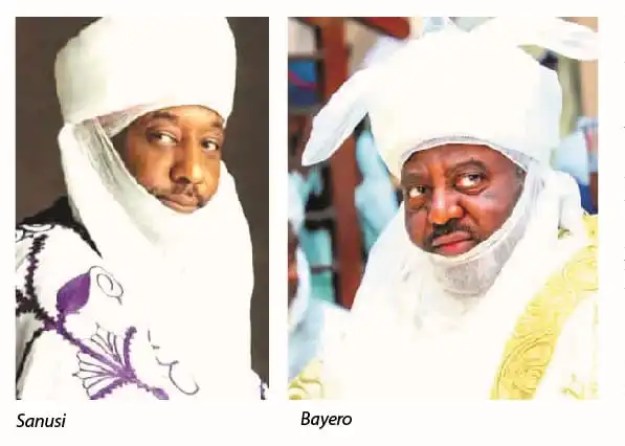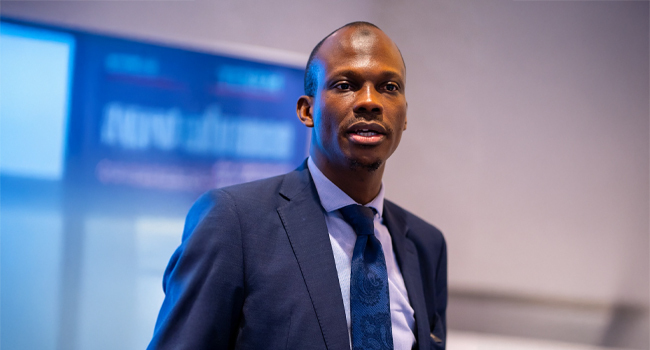 For many Africans, leadership has historically been best espoused through the numerous monarchs and traditional leaders that dot the continent. History is filled with records and achievements of kings and queens who wage wars, conquer cities, and show service from their thrones.
For many Africans, leadership has historically been best espoused through the numerous monarchs and traditional leaders that dot the continent. History is filled with records and achievements of kings and queens who wage wars, conquer cities, and show service from their thrones.
Independence-era leaders, many of whom would later take on attempted monarchies of their own, are rivalled only by the many leaders who fought bravely against colonial efforts and remain icons, albeit mostly relegated to history books. As a result of this history, with many stools predating modern African countries with their colonial imprints, many thrones are revered for the longevity and legacy they represent.
Yet this status is at threat by a force stronger than colonial imposition, religious movements or even populist revolutions—retail politics.
Most Nigerian thrones no longer follow set succession formats, to eldest children or designated heirs, but are appointed by state governors because of the patronage that comes with the role.
Governors are often given names from a shortlist curated by kingmakers, from which they select an individual with outsized influence who could play a key role in consolidating a politician’s influence in their state.
For example, Oba Rilwan Akiolu of Lagos, crowned in 2003 by then-Lagos governor, Bola Ahmed Tinubu, has been a steadfast ally and repeatedly criticized Igbos for voting against Tinubu’s party, the All Progressives Congress (APC).
Perhaps no throne has been as politicized in recent years as the Kano Emirate. In a scene reminiscent of HBO’s Game of Thrones or a drama set in ancient feudal times, there are two claimants to the throne, and they are supported by different political groups.
On the one hand, Emir Muhammadu Sanusi II was appointed by Governor Rabiu Kwankwaso, dethroned by Governor Abdullahi Ganduje and reappointed by Governor Abba Kabir Yusuf. On the other, Emir Aminu Ado Bayero was appointed by Governor Ganduje and the attempted removal by Governor Yusuf has led to a controversy in a key state in the country.
This incident has brought the nation’s most populous state, according to official records, and the commercial capital of the north, to a standstill.
Regrettably, the victims of the comedy of errors are the citizens and followers who are rightly bemused as to which leader to genuflect for.
Let’s’ take a look at how the latest sub-plot developed in recent months, Following the passage of the Kano Emirates Council Law (Repeal Bill) 2024 by the Kano State House of Assembly, which was assented to by the Executive Governor of Kano State on Thursday, May 23, 2024, at 5:10 PM, the law dissolved the five Emirates created by the former Governor of the State, Ganduje.
These included Bichi, Rano, Gaya, Karaye, and the Kano Emirate, which comprises eight Metropolitan Local Governments. The new law reinstated Muhammadu Sanusi II as the 16th Emir of Kano. On the same day, the 15th dethroned Emir of Kano, Aminu Ado Bayero was not in Kano but returned to occupy the Nassarawa Mini Palace. This situation created significant tension in Kano.
To alleviate the tension, it was understood when the Governor of Kano State ordered the Police to arrest the dethroned 15th Emir, who was accused of fueling the tension. In response to the arrest order from the governor, the dethroned Emir filed a suit via the Enforcement of Fundamental Human Rights at the Federal High Court, seeking to enforce his right to movement and his right to reside anywhere in Nigeria, including Kano State.
It is worthy of note by that, according to the customs and traditions of the traditional institution such as the Kano Emirate, it is customary for an Emir to vacate the Kano Emirate territories after being dethroned.
Constitutionally, every Nigerian has the right to reside anywhere in Nigeria. By the supremacy of the Constitution, any law or custom that contravenes its provisions the Constitution shall prevail. Based on the Federal High Court’s decision, the 15th dethroned Emir has the right to movement and the right to reside anywhere in Nigeria; however, these rights do not permit occupying someone else’s property without the owner’s consent.
Staying in the Nassarawa Mini Palace without the prior consent of the owner constitutes trespass. It is well-known that fundamental human rights have limitations. Peace and security can restrict these rights, which is one reason the Kano State Government ordered the eviction of the dethroned 15th Emir of Kano from Nassarawa Emir Palace.
But then Kano State Commissioner of Police responded: “The government is jumping the gun because the same government has filed a case regarding the eviction order, which is scheduled for a hearing on June 24, 2024. If we carry out the order, it would be like we are preempting the court, as we don’t know what will happen there.”
Following the position of the Commissioner of Police, the Kano State High Court ordered as follows: “An order is hereby granted to the extent that the Commissioner of Police, Kano State, should immediately take possession of the palace of the Emir of Kano located on State Road, Kano, and evict the dethroned Emir.”
Following the court order, the Kano State Government directed the State Commissioner of Police to remove the deposed monarch from the Nassarawa Mini Palace, where he was alleged to have trespassed, as the government had already concluded arrangements for the general reconstruction and renovation of the property, including the demolition and reconstruction of the dilapidated wall fence, with immediate effect.
However, the then Commissioner of Police, Mohammed Gumel, stated that the police would obey the order, which restrained the Kano government from taking further action or executing the new law (parties to maintain the status quo). He was quoted as saying, “The Police Command is expressly obeying the court order in SUIT No. FHC/KN/CS/182/2024 dated May 23, 2024, issued by the Federal High Court sitting in Kano, alongside other law enforcement agencies in the state.”
From the foregoing background, it should be understood that the first throw by Federal Government was the escort of the then Emir by security personnel from Abuja to Kano, who settled at the Nassarawa Mini Palace. These security personnel remained with him and continued to provide special security until present day.
The second slap occurred when the police were ordered by the Kano State Government to evict the then Emir, but the police responded that they needed to wait for a court order since the government had filed a case for eviction, with June 24, 2024, set for the hearing. After the court hearing on that date, the court issued an eviction order; however, the police stated they were bound by the Federal High Court order rather than the State High Court.
The third punch, the Kano State Government needed to recover its property, which the dethroned monarch was alleged to have trespassed upon, the proper procedure would have been to go to the Rent Recovery Tribunal and file an action for recovery of its property. The Rent Tribunal is the only court with primary jurisdiction to evict the then Emir, apart from the State High Court.
The Kano State Government went to court, as it was a court with specific jurisdiction, and obtained an eviction order, which was presented to the police for execution. However, as usual, excuses were presented and the police neglected to comply.
Today, there is a new sub-plot to this unfortunate interference by ‘Abuja people’ in Kano as there was tension in the state as both emirs have signaled their intentions to host the 2025 Sallah Durbar. Initially, in an igniting response to a directive from Governor Yusuf instructing Emir Sanusi and the monarchs to prepare for the 2025 Sallah Durbar, Emir Bayero also formally notified the Kano State Police Command of his intention to host the event.
A letter signed by his Private Secretary, Abdullahi Haruna Kwaru, outlined a detailed schedule for the celebrations.
According to the letter, the Durbar will commence at the end of March 2025, featuring the iconic Hawan Sallah, Hawan Daushe, and Hawan Nassarawa processions. The festivities will span four days, aligning with the 1st to 4th days of Shawwal 1446AH.
But 24 hours ago, there seemed to be an air of rethink from the Nasarawa Mini Palace as Emir Bayero announced cancellation of his planned Sallah Durbar.
“We had to call off the arrangement to conduct the durbar after respected Islamic Clerics and elders prevailed on us and after consultation with my counsellors,” Aminu Bayero said.
This turned-around decision has drawn bigger condemnation on Bayero as the good people of the state wondered why Bayero and his pushers in Abuja are subjecting the state to an untold volatile tension over a ‘false’ claim to a throne.
It is an established fact that while Emir Sannusi is painted as the reel victim pushed by the state government, Sanusi and Governor Abba are actually the real victims here, and Emir Bayero is only a reel victim.
Abubakar Abdullahi – Abdullahi writes from Kano and can be reached in Kano at [email protected]






